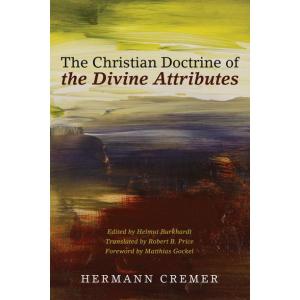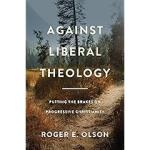Final Thoughts about Cremer’s Book “The Christian Doctrine of the Divine Attributes”
Now I bring to a close my posted thoughts about the book some of us have been reading together. I have now read the entire book including 5: The Unity of the Divine Attributes, or the Glory of God (pp. 82-84), the final section. I will, of course, offer my thoughts in response to some questions and comments by you. If you have read the book, you may comment. If you have not, you may ask a question. I am now considering a new book for discussion here. Stay tune…
I very much enjoyed reading Cremer’s book especially because I have long heard about it but have not read it. Until fairly recently it was only in German and I did not have access to it (that I knew about). I heard Wolfhart Pannenberg mention it in lectures in Munich in 1981-1982 and saw it mentioned by him in his Systematic Theology. I also knew that Cremer influenced Karl Barth, but I did not know how. Now I do know.
Cremer’s insistence on knowing God’s attributes from revelation is good and right, but I also think reason can help in thinking about God’s attributes, especially God’s “metaphysical” attributes. However, I appreciated Cremer’s strong emphasis on revelation over philosophy—in thinking about God.
I also appreciated Cremer’s focus on redemption as the key to God’s history with our history. God has always aimed at our redemption. Good to know and ponder.
As I have said here before, I have long been intrigued by the idea of God’s history, the history of God, even the historicity of God with us. Does God have a history? I became intrigued by that question when I took a graduate course on Process Theology and decided it was not for me but I did believe God is a living God with a life story, a history. Just not one that involves panentheism.
I read theologian Robert Jenson’s God After God and was taken in by it. I continued then a life long journey of reading and contemplating the “history of God” mainly through studying the theologies of Juergen Moltmann and Wolfhart Pannenberg.
In this final section of Cremer’s book I found this intriguing sentence: “So it comes to pass that God’s self-manifestation for our redemption has a history.” (83) I’m not sure that Cremer would agree, but to me that means God has a history. If God and God’s revelation, self-manifestation, are one, as Karl Barth so strongly insisted (and Brunner agreed), then the history of God’s self-manifestation means the history of God himself. If I could meet Cremer and ask him one question it would be that. Doesn’t it mean that God has a history? I wonder what he would say? I know that both Moltmann and Pannenberg said yes. I think Barth wanted to say yes, but I’m not sure he could quite bring himself to say yes because of the specter of Hegel.
One area where I found strong disagreement with Cremer was about God’s self-limiting. I believe that God limits himself for the sake of what Brunner called creation’s “relative autonomy,” including our freedom to sin, to go against God’s perfect will. How could God not have limited himself in light of the horrible evils of human history? To me, God’s self-limitations are obvious—in revelation itself. God restricts his power to control everything.
In spite of some differences of opinion, I found reading Cremer’s book useful in terms of making me think more deeply about God’s attributes, placing God’s redemptive plan and action at the center. I hope you felt reading the book was also useful.
*Note: If you choose to comment, make sure your comment is relatively brief (no more than 100 words), on topic, addressed to me, civil and respectful (not hostile or argumentative), and devoid of pictures or links.*














